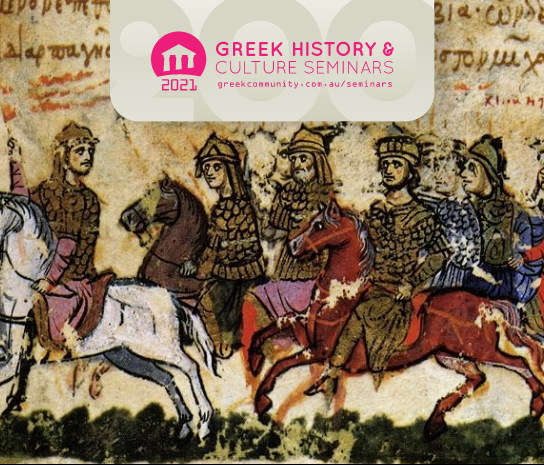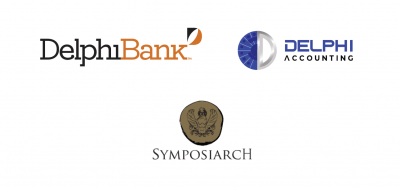- ΣΧΕΤΙΚΑ
- ΤΕΛΕΥΤΑΙΑ ΝΕΑ
- ΗΜΕΡΟΛΟΓΙΟ
- ΕΚΠΑΙΔΕΥΣΗ
- ΕΚΚΛΗΣΙΕΣ
- ΓΙΝΕ ΜΕΛΟΣ
- Ελληνικό Κέντρο
Eventlist
Εκδήλωση

- Τίτλος:
- Online-Only: The Battle of Manzikert (1071): Tipping Point in Byzantine History?
- Πότε:
- 12.08.2021 19.00 h
- Που:
- Live Streamed Seminars Online Delivery -
- Κατηγορία:
- Εκπαίδευση
Περιγραφή
Presenter: Dr James Kane
Language of Presentation: English | R.M.L.G.*: 0 - No knowledge of Greek required.
Synopsis
The Battle of Manzikert in 1071 has often been seen as a pivotal moment in the history of the Byzantine Empire. In recent decades, historians have challenged the traditional view of the Turkish victory at Manzikert as a key contributing factor to the long decline of Byzantium, but there is no denying that the battle was an important event in the wider context of the eleventh century. This talk will draw on various medieval sources and modern academic research to explain the lead-up to Manzikert, the events of the battle itself, and its longer-term consequences for Byzantium and the political landscape of the eastern Mediterranean world.
In 1071, the Seljuq Turkish ruler Alp Arslan inflicted a heavy military defeat on the Byzantine army near Manzikert (modern Malazgirt) in eastern Anatolia. The capture of the emperor himself, Romanos IV Diogenes (r. 1068–1071), marked an embarrassing new low for the Empire, and the failure of his forces struck a fatal blow to his authority in Constantinople. Although Romanos was treated honourably by Alp Arslan and released after only eight days, he was quickly replaced as emperor, then blinded and sent into exile on an island in the Sea of Marmara, where he died the following year. Alp Arslan only outlived Romanos for a short time, but his victory at Manzikert had laid the foundations for the Seljuqs to make significant inroads into Anatolia under his son and heir, Malik-Shāh I (r. 1072–1092).
As with all major battles in the past, historians have regularly debated the significance of what happened at Manzikert. They have argued about how and why the battle came to be fought in the first place, about the wisdom (or foolishness) of the choices made by Romanos IV and other key figures in the Byzantine camp, about the precise course of events at Manzikert, and most importantly, about what Alp Arslan’s victory meant for the Byzantine Empire. At the heart of this debate lies a long-standing question: was the Battle of Manzikert a tipping point in Byzantine history, or just another setback in a series of crises and defeats that shook Byzantium in its final centuries of existence leading up to the Ottoman conquest in 1453?
Bio
Dr James Kane is Lecturer in Medieval History at Flinders University in Adelaide. He specialises in the crusades but teaches widely across the history of the medieval and early modern periods. Together with Dr Keagan Brewer (Macquarie University), he has published The Conquest of the Holy Land by Ṣalāḥ al-Dīn: A Critical Edition and Translation of the Anonymous ‘Libellus de expugnatione Terrae Sanctae per Saladinum’ (Abingdon and New York: Routledge, 2019), which makes an important Latin eyewitness account of the fall of Jerusalem in 1187 available in translation. James has also written articles and book reviews for Viator: Medieval and Renaissance Studies, Parergon, Medium Ævum, the Journal of Religious History, the Journal of Medieval History, and The Medieval Review. He is currently working on a book with the provisional title The Crusading Cross: Ideology and Practice, c. 1095–c. 1300.
HOW TO PARTICIPATE
The event will be simulcasted YouTube Live, Facebook Live, and Twitter Broadcast.
You don't need an account to watch the live broadcast with any of the above services.
However, if you want to participate in the Q&A at the end of the seminar you'll need an account with the equivalent service in order to post your question in the comments / chat.
Sponsors
During the course of the year considerable expenses are incurred in staging the seminars. In order to mitigate these costs individuals or organisations are invited to donate against a lecture of their choice.
You too can donate for one or more seminars and (optionally) let your name or brand be known as a patron of culture to our members, visitors and followers, as well as the broader artistic and cultural community of Melbourne. Please email: Αυτή η διεύθυνση ηλεκτρονικού ταχυδρομείου προστατεύεται από κακόβουλη χρήση. Χρειάζεται να ενεργοποιήσετε την Javascript για να τη δείτε. or call 03 9662 2722.
We also thank the following corporate sponsors:
* R.M.L.G.: Recommended Minimum Level of Greek in order to enjoy this Event, on a scale of 0 to 5.
Τόπος διεξαγωγής
Online delivery for seminars happens over 3 different platforms in parallel (simulcasting).
The 3 platforms we have selected are YouTube, Facebook and Twitter.
You don't need an account to watch the live broadcast with any of the above services.
However, if you want to participate in the Q&A at the end of the seminar you'll need an account with the equivalent service in order to post your question in the comments.
Our YouTube channel is at https://youtube.com/gocmv our Facebook page at https://www.facebook.com/Greekcommunitymelb/ and our Twitter page at https://twitter.com/gocmv/
If the speaker allows us to record the seminar, it will stay up on our page for on-demand viewing, if not, we will delete the seminar video after the live-streaming ends.
EventList powered by schlu.net












